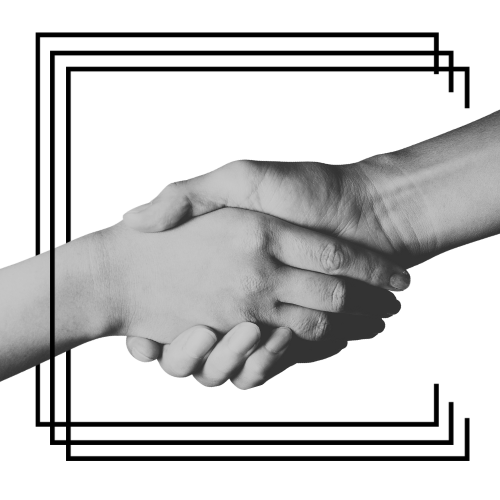The judge knows a lot you don’t know.
The judge knows the success rate of settlements in mediation. They’re high. The judge knows that most people walk away from mediation happier than they are when they walk out the court house doors after a trial. And the judge knows the cost of a trial, both in terms of your money, your time, and the mental and emotional space a trial is going to take up in your head.
These are the main reasons mandatory court-ordered mediation before a trial is increasingly common.
Less than $1,000 now and be done in a day. With you in control. And with a high likelihood of a mutually-agreeable settlement.
OR $5,000 or maybe $10,000 or $30,000 or way more out of your bank account combined with the next months or years of your life sucked into the chaos of a trial — with an unpredictable outcome totally out of your hands to be set in stone by someone you do not even know and hung around your neck for years to come.
Ask your lawyer if your lawyer is always certain how a judge will rule. Ask your lawyer if your lawyer has ever been surprised by a judge’s ruling or a jury’s finding. More important, ask your lawyer if your lawyer is willing to guarantee the outcome and the cost of your trial.
The judge who requires court-ordered mediation before scheduling a trial knows the answers to these questions. And that judge is talking a definitive step to help you. And to help your mental health and your bank account.
Research shows that in most areas of law, up to 90 percent of mediations end in an agreed settlement. Research also shows that while parties in a mediation may not feel they walk out of the mediation with everything they want or a perfect solution to the problem, the vast majority walk out feeling they can live with the agreement. Most report feeling a huge burden has been lifted. They often say they see the other guy’s side a little differently and that they feel heard and understood, sometimes for the first time. They walk out feeling the other side sees where they are coming from in a way they did not before. They feel like they found a comfortable middle ground in mediation. And they averted a trial.
But here’s the main thing the judge knows. A TRIAL IS NOT FUN. In fact, it’s pretty awful. They call it a “trial” because it is a deeply and profoundly trying experience.
In a trial you may or may not get to state how you feel or how the issue has impacted you. You may be bound by an obscure point of law that you didn’t realize existed or you think is totally inappropriate or minor, and yet the outcome of the trial is totally based on it. A trial is an adversarial verbal war zone. In a trial you will be questioned. You may be cross-examined or insulted, vigorously challenged, and possibly even bullied or intimidated by opposing counsel. You can expect your ego, your reputation, your self-concept, your honesty, even your good name to come out wounded. Make no romantic mistake about it: a trial is a legal war zone. In a trial the outcome is decided on hard facts as they are applied by set law. It makes no difference if you love it or you hate it, what the jury finds or what the judge rules is the outcome of the trial. Period. There is a winner. And there is a loser. And there is no guarantee or insurance policy for which one you are going to be.
A MEDIATION IS VERY DIFFERENT.
In a mediation you have the opportunity to express how the situation impacts you, how you feel, what your vantage point is — with no interruption or challenge. Your story, your position, is yours. And you have the right to it and the right to be heard. So does the other party. You have an opportunity to listen, possibly learn, and even maybe see the other side in a way you may not have previously seen it. Mediation is a calm, controlled, peaceful, and safe process. Emotions are allowed at the same time that reason and logic are the ultimate goals. Ideas and potential solutions will be brainstormed, shared, dissected, re-thought, re-imagined, discussed, bounced around…and in the end parties often find a resolution of the problem they never considered before. But the solution is UP TO YOU. It’s in your hands. You have a say. It’s a mutual decision, but it is at least half yours. And in finality, you decide if an agreed solution is acceptable to you. Neither you or the other party is guaranteed to find the solution perfect. But you have control over what you are willing and able to live with and what you’re not.
A judge knows all of this. And that’s why the American judiciary so strongly favors mediated settlements. That’s why your judge has ordered you into mediation. It’s a gift, not a punishment.


No responses yet